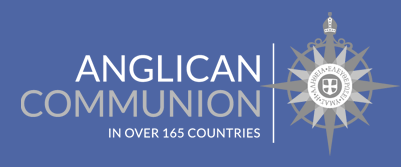Subject: Ecumenical Relations: Anglican United Church Affirmations and Commitments
Moved By: The Rt. Rev. Lynne McNaughton
Seconded By: The Rt. Rev. Nigel Shaw
Be it resolved that this General Synod:
Receive and affirm the Statement of Mutual Affirmations and Commitments produced by the Anglican Church of Canada-United Church of Canada Dialogue.
Source: The Anglican Church of Canada-United Church of Canada Dialogue
Submitted By: Faith, Worship, and Ministry Coordinating Committee
Does this motion contain within it any financial implications? Yes No
If yes, has the General Synod Expenditures Committee considered the implications? Yes No
EXPLANATORY NOTE/BACKGROUND
Christians in the Anglican and United Church traditions in Canada have been working together in witness, mission, service, and education for nearly one hundred years. For nearly fifty years (from 1972 to 2016) we have been engaged in focused bilateral dialogues, seeking to grow as churches in our God-given unity in Christ. These conversations have continued to reveal the obstacles and challenges which remain between us – especially in the areas of ministry and polity – and how they hinder our pursuit of full visible unity. However, the many progress reports and study documents which the Dialogue has produced along the way have also enabled our churches to say a great deal about what we do recognize in one another and affirm together as communities of faith in the Body of Christ.
The present iteration of the Anglican-United Church Dialogue began in 2017, and is ongoing. The members appointed to the dialogue are all keenly aware of the ways in which new developments and decisions in our churches have ecumenical implications. In particular, the Dialogue understands that many Anglicans have paid close attention to the recent geographical and jurisdictional restructuring of United Church polity which has been unfolding in 2018-19, and to the ways in which these emerging structures will be able to carry out the task of pastoral and apostolic oversight in response to new questions and challenges. The uncertainty that this time of transition has produced understandably calls into question, for some, what the future directions and possibilities for Anglican-United dialogue and partnership will be.
At this significant period in the histories of our churches, the members of the Dialogue believe that it is important remind ourselves of the many shared convictions and mutual recognitions which our two churches have expressed together in previous dialogue documents and reports, and to restate these again in a succinct and declarative way. The aforementioned Statement of Mutual Affirmations and Commitments (See Appendix) does not purport to resolve any of our outstanding differences, nor to arrive at any new agreement. However, in light of the great potential and continuing need for partnership in the responsibilities and callings of reconciliation, mission, and ministry which continue to lie before us in this land in the 21st century, it is critical to have renewed clarity about the substantial foundation on which we stand, and from which we desire to move forward in shaping our future relations. For the General Synod of the Anglican Church of Canada and the General Council Executive of the United Church of Canada to receive this Statement, and to reaffirm its content, is an opportunity to do precisely that.
PROCEDURE FOR ADOPTION (G)
In the normal course, an ordinary motion must be passed by a majority of the members of General Synod present and voting together. Six members of General Synod may, prior to the question being put, require a vote by Orders, with a majority of each Order being necessary to pass.
If a question passes on a Vote by Orders, any six members (two from each of three different dioceses) may immediately before the next item of business require a vote to be taken by dioceses. A motion passes if a majority (or a tie) of dioceses vote in favour.
Source: Sections 4 and 5 of the Declaration of Principles and sections 18, 19 and 20 of the Rules of Order and Procedure.


